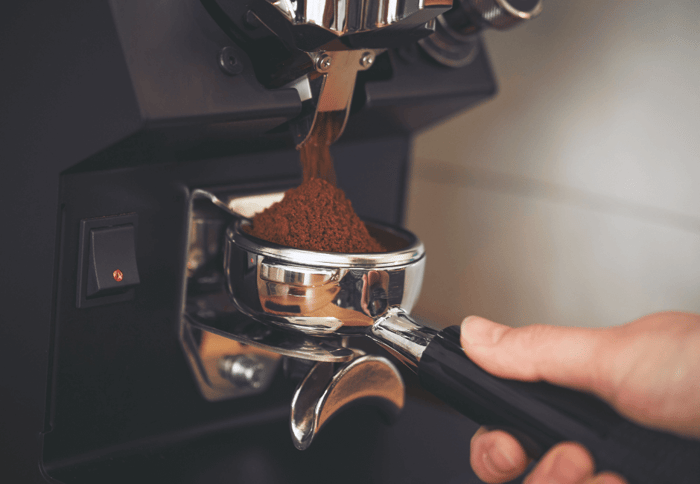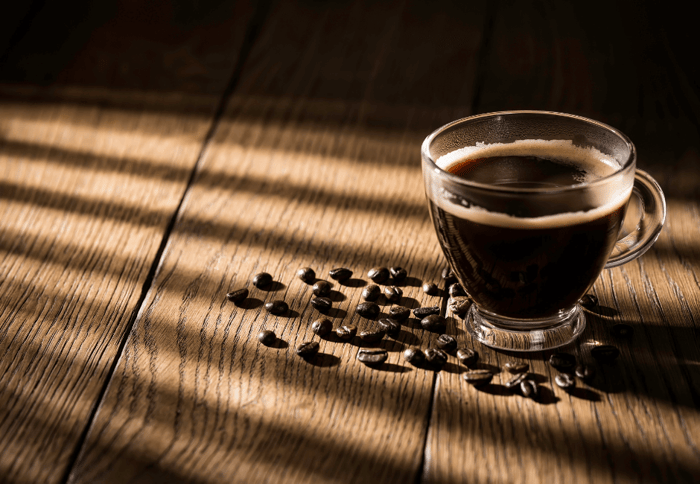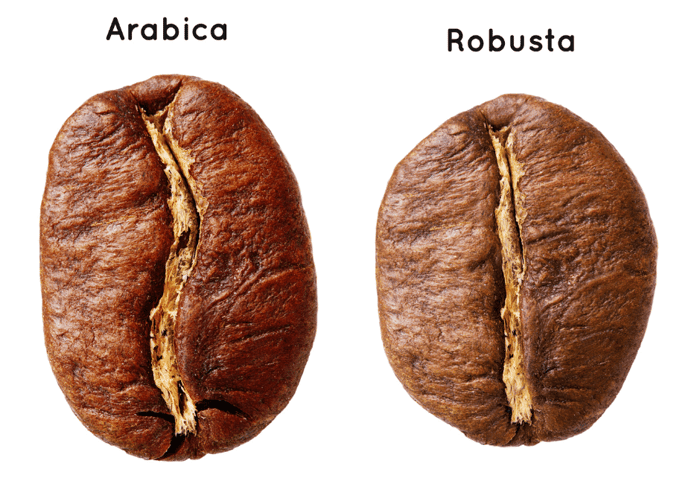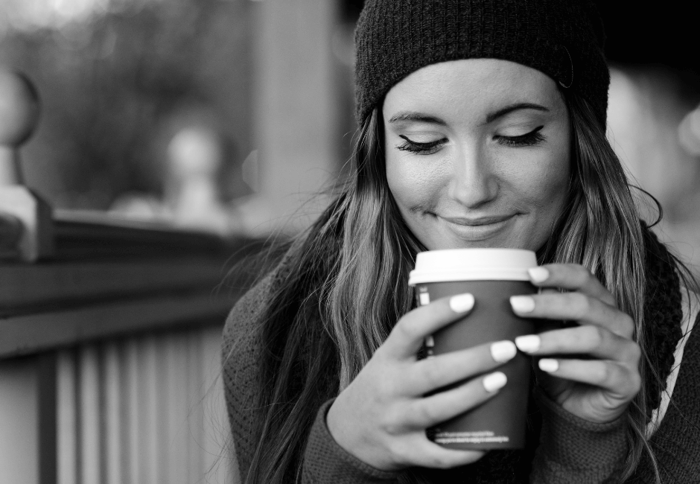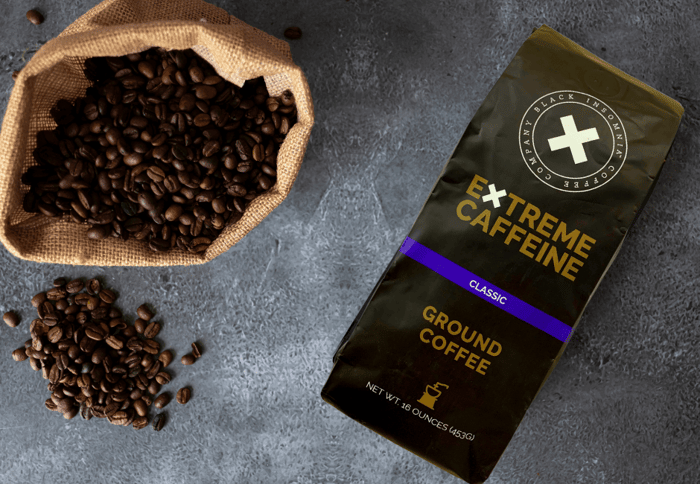Why do we have to grind coffee beans in the first place? Why don't we just leave them whole and submerge them in hot water?
I mean, we don't grind apples before we make apple pie, do we? We don't grind beef before we make a hamburger, do we? Bad example—but you get the idea.
So why do we go through the extra effort of grinding coffee beans?
The answer is that coffee beans are too hard to brew effectively without grinding them first*.
(*Try it and see what happens. You'll end up with a very weak, watery cup of something with only a tenuous resemblance to coffee—not to mention wasting some perfectly good coffee beans in the process.)
Like other kinds of seeds, the coffee bean is designed by nature to withstand all sorts of abuse—including being eaten by animals, which is one way coffee trees propagate (well… moreso in the past than today).
It's a good thing they’re so robust, because otherwise we might not have coffee today.
But water can't penetrate the tough outer “shell” layer of a coffee bean very well, so it can't extract all of the coffee's flavors and oils.
It takes quite a bit of effort to grind them into the tiny pieces we need for brewing. That's why we have coffee grinders, and why they're so loud.
Grinding the beans breaks down the hard outer shell, making it easier for water to extract all of those delicious flavors and oils. Grinding beans also breaks them up into smaller pieces, which means more surface area. And the more "surface area" that's exposed, the more flavors, oils, and other compounds can be extracted.
So logically, it follows that the finer the grind, the more caffeine will be extracted—right?
In short: Yes.
The finer you grind those coffee beans, the more caffeine is going to be extracted from the beans and end up in your cup of coffee; simply because a finer grind results in more surface area being exposed to water. When more surface area is exposed, more of the coffee’s soluble compounds are extracted. Which, in turn, means that more of the coffee’s caffeine is extracted.
But there's a fine line to walk when it comes to a fine grind. (Pun not intended, but I'll allow it.) While a finer grind will result in more caffeine in your cup, you still want to be careful not to go too fine.
Grind coffee beans too finely and you're very likely to end up with a cup of coffee that tastes bitter, over-extracted, and just generally less enjoyable.
So, if you're looking to make a cup of coffee with maximum caffeine, aim for a grind that's on the finer side but still allows for a good extraction. (And, of course, use the strongest coffee with the highest caffeine content to start with! Otherwise, what's the point?)
Final Thoughts
While a finer grind does mean stronger coffee with more caffeine, it's not always better.
You still have to be mindful of the grind size and brew time to ensure you're not overdoing it. Otherwise you’ll end up with a ruined brew, and some major bitter coffee face.
So, if you're looking to make the strongest cup of coffee with maximum caffeine, remember to:
- Use the strongest coffee beans (most caffeine content) you can find.
- Grind your beans on the finer side—but not too fine for your brewing method.
- Be mindful of your brew time.
Follow these tips, and you'll end up with a fine (and strong) cup of caffeinated goodness—every time.
Black Insomnia Extreme Caffeine - Strongest Coffee in the World
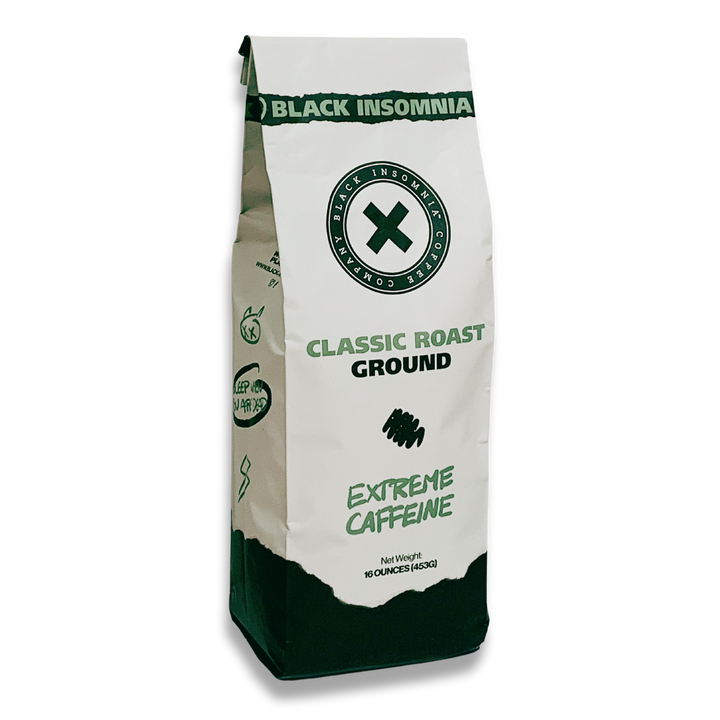
$19.99
The Strongest Coffee in the World Black Insomnia contains up to 4x more caffeine than other brands. Lab tested. Coffee-holics approved! Tired of being tired? Needing 4-6 cups of coffee just to feel sluggish by 3pm? Not anymore! Its time… read more

